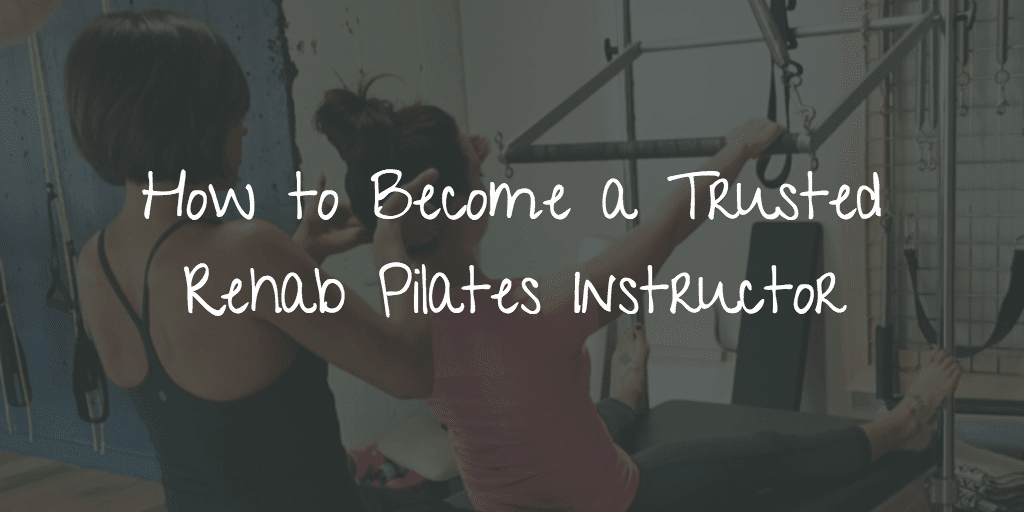Pilates is a fast-growing exercise and fitness activity across the country. Like all Pilates instructors, those focused on Pilates for rehabilitation are most successful when they are well qualified, instilled with confidence, and respected among students. If you’re interested in becoming a rehab Pilates instructor, or you’re looking to expand your knowledge into this area, consider these tips on how to make it happen so that you – and your clients – have the best experience.
Class Size: Groups or Individuals
As you map out your plan to excel as an instructor specializing in rehab Pilates, think about the type of person you are. Do you prefer working with large groups, leading classes, following plans? Or do you like programs with individuals where you customize training plans and partner with a client to meet specific goals? Knowing your style and teaching preference will help you define if focusing on a group or individual Pilates instruction is the right path for you and your students.
Top Training
Clients look for instructors who are well certified and coaches that they can rely on to provide them with expert guidance, care, and results. For Pilates rehabilitation support, instructors must be even more skilled and practiced. The training and certification you get matters, so look for the best programs you can find (such as the Polestar Pilates Education we offer). Seek out training from licensed and certified instructors who are working in a reputable studio. To ensure you provide superior instruction to students, consider programs that are backed by the Pilates Method Alliance.
Keep Training
Becoming a rehab Pilates instructor only begins at certification. Be sure you are ready to commit the time, practice, and ongoing continuing education necessary to maintain certification and progress your skills. You will be busy in your work and secure a loyal following of clients when you can show you’re continually seeking to learn more about the industry, the latest research findings, and new Pilates programs to help your students succeed.
Specialty Service
If Pilates rehabilitation is the specialty track you’d like to pursue, make sure your basic Pilates foundational knowledge is strong, first. Having a full, well-rounded Pilates skill set is critical to inspiring confidence in both you and your students. Pilates for rehabilitation is the natural extension of basic Pilates training. With foundational and advanced training, you’ll be able to help clients recover and deal with a range of conditions and situations, such as osteoporosis, muscle tension, back pain, or injury.
If you’re considering rehabilitation Pilates education, we’d strongly recommend you look at the Firehaus Pilates training program. Firehaus is a Polestar Pilates education center offering a comprehensive Pilates Rehabilitation Certificate. Polestar Pilates focuses on whole body wellness and healing with mind-body-spirit connectivity. The Polestar Pilates rehabilitation curriculum is associated with the Pilates Method Alliance (PMA) and uses evidence-based techniques to help instructors guide people to restore and excel in physical movement through pain stabilization, improved range of motion, and increased muscle focus.
Contact us today about our trusted and comprehensive Pilates instructor training programs!



Hi Rachel,
Wonderful post!
Really helpful and great tips.
-Justine